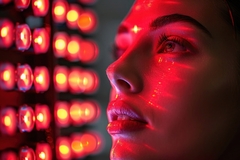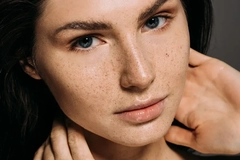Drunk Elephant sales drop after “Sephora kids” tarnished brand reputation

Drunk Elephant’s sales have dropped 65% year-over-year in the first quarter of 2025, according to parent company Shiseido’s latest financial report. The sharp decline caused a broader 8.5% decrease in net sales across the Japanese beauty giant’s global portfolio.
Through social media, Drunk Elephant has gained popularity among Gen Z and Gen Alpha consumers, but struggled to retain its original Millennial and Gen X audience. Multiple safety concerns have been raised about the brand’s young customer base using products with potent ingredients, leading to a tarnished reputation.
Personal Care Insights speaks with Innova Market Insights’ project lead for Beauty Personal Care, who points to this shift in customer base as a possible cause of weakening loyalty and fewer repeat purchases.
“Drunk Elephant’s packaging and market positioning in the social media sphere due to the viral ‘Sephora kids’ trend has been a bit of a double-edged sword. It was one of the most viral brands on TikTok from the end of 2023 and through 2024, rode this trend, and got identified as ‘trendy’ and ‘cool’ by an audience of young Gen Z and tween/teen Gen Alpha users.”
“However, this alienated the ‘serious’ skin-expert audience, despite the many active ingredients they used.” The project lead says that while the brand successfully attracted a new market, it also “cornered itself into a competitive niche” with limited long-term growth potential.
“Sephora kids’” wounded reputation
In 2024, the brand became heavily associated with the “Sephora kids” trend, where tweens and young teenagers buy, use, and showcase high-end skin care online. Research circulated about the harmful effects of using adult skin products prematurely, especially ones that contain potent active ingredients such as retinol and salicylic acid.
This raised concerns among parents, industry experts, and regulators, leading to legislative efforts to bar children’s use of mature skin care products. A bill was recently passed in California, US, targeting anti-aging products for minors.
 The rise of tweens using anti-aging skin care has sparked debate across the beauty industry.The growing consumer awareness of children’s safety and regulatory efforts has added further scrutiny to the “Sephora kids” market segment. Drunk Elephant’s compromised reputation left a bruise on the brand’s financial performance.
The rise of tweens using anti-aging skin care has sparked debate across the beauty industry.The growing consumer awareness of children’s safety and regulatory efforts has added further scrutiny to the “Sephora kids” market segment. Drunk Elephant’s compromised reputation left a bruise on the brand’s financial performance.
Shiseido states that Drunk Elephant is undergoing efforts to drive recovery through a diversified consumer engagement strategy. However, the project lead questions whether the brand can regain relevance with its original customer base while retaining younger consumers.
“Time will tell how Shiseido restructures itself. It has undergone some changes in its executive leadership, which can influence its approach to brand messaging for its target audience. This could also be an important time for them to reevaluate how to align Drunk Elephant with the overall ‘vibe’ of the parent company, which at this moment, is at a dissonance,” she says.
Economic pressure propels dupes
Shiseido identified tariffs as a significant downside risk in 2025, with an estimated potential impact of up to ¥7 billion (US$48.4 million) on annual core operating profit. The company highlighted increased import costs on raw materials and finished products, including those manufactured in the US, such as NARS and Drunk Elephant.
“The looming US tariffs (expected to be 24% for the export-heavy Japanese economy from July) can negatively impact the brand’s production-related financial resources and supply-chain mobility,” says the project lead.
Shiseido is taking several mitigation actions, including shifting to local sourcing, reviewing production sites, streamlining logistics, using tariff exemptions, adjusting pricing, and building inventory.
These countermeasures are part of the company’s broader cost-reduction and risk-management efforts to maintain profitability in a volatile global trade environment.
“Global economic pressures, especially high inflation rates, can have a negative impact due to the premium pricing of Drunk Elephant products,” adds the project lead..jpg) Drunk Elephant’s viral packaging helped boost popularity, but also sparked backlash.
Drunk Elephant’s viral packaging helped boost popularity, but also sparked backlash.
However, she notes that “dupes” have emerged. Short for duplicates, the term is used often on social media to refer to more accessible alternatives to popular products.
“Dupes came with concerns about safety and poor quality a decade ago, but the term is now becoming a bit of a marketing trope instead,” she says. “Dupes do not necessarily equate to poor quality anymore, and instead indicate simply a more inexpensive alternative.”
“Multiple influencer posts for ‘Drunk Elephant dupes’ are helping low-cost products position themselves in a trickle-down recommendation campaign across social media.”
the project lead continues that a business model based on social media virality often lacks a long-term track record because the younger audience is not as focused on brand loyalty as on quality improvements and diversity in choices.
“Gen Z especially is very vocal as an audience, and while they may initially tap and participate in the virality of an ongoing trend, the ‘fluff’ phase eventually fades away, and the bottom-line ‘crunch’ is the actual delivery they look for.”
Other brands in Shiseido’s portfolio also reported sales declines, including NARS (-2%), the Shiseido brand (-7%), Issey Miyake (-14%), and Narciso Rodriguez (-8%). The US market was the worst affected, with sales falling 19.4%, though the Chinese and travel retail markets also declined by 14%.
Despite the downturn, Shiseido still forecasts growth for Drunk Elephant later in the year.













